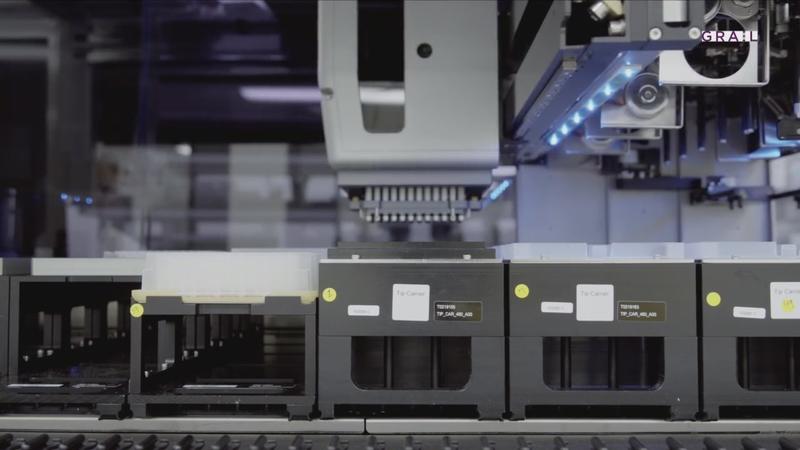In-Depth: Blood test can detect 50 types of cancer but it comes with hefty price tag
[anvplayer video=”5068899″ station=”998131″]
ROCHESTER, N.Y. (WHEC) — It could be a game-changer; a simple blood test that can detect 50 different types of cancer, some as early as stage one. The Galleri test is now approved for use here in New York but it comes with a pretty hefty price tag.
John Seniuk was living a normal life, sharing his days with his bride of 56 years, working on the family boat with his son and spending a whole week this summer with his granddaughter.
“He was just hanging out, doing what he did, everything was normal, he was fine,” his son, Andy, told News10NBC.
But in August, John’s health suddenly started deteriorating.
“He was like kind of short of breath and just weak and then my mom said he was getting kind of disoriented at that point a little bit too,” Andy explained.

[GRAIL, Inc.]
John was rushed to the hospital.
“They ran all the tests — probably everything you could run and they found out that he had stage four cancer in his pancreas, liver and then some of it spread to one of his kidneys and I guess his lungs,” John said.
It was less than a month between diagnosis and John’s death.
Dr. Julia Feygin has a similar, heartbreaking story.
“This is a personal mission for me, I lost my dad to pancreatic cancer when I was a child he was only 40 years old, “ she said, “by the time he was diagnosed, it was already stage three and he was basically told that he had two months to live. He ended up fighting for nine and I promised him before he died that I was going to join the war and cancer.”
That’s exactly what Dr. Feygin did. She joined the team of researchers at a company called GRAIL, Inc. and helped to develop the Galleri test. Basically, a patient gives a vile of blood and using genetic sequencing and artificial intelligence technology, Galleri can test it for 50 different types of cancer.
“We can find and we can sequence, these tiny bits of tumor-derived DNA in the blood and based on the patterns that we see, we can reveal if a signal for cancer is present and we can predict with very high accuracy wherein the body this cancer signal is coming from,” Dr. Feygin explained.
The Galleri test was recently approved for use here in New York.
“When cancer is caught early, eight or nine out of 10 times we can have a positive outcome where lives can be saved… we can detect cancer as early as stage one,” Dr. Feygin said.
GRAIL, Inc. says the test is for people who have an elevated risk of cancer meaning those who are older than 50, have already had cancer, or those with a family history or genetic predisposition to the disease. The company also says the Galleri is intended to complement existing cancer screenings, not replace them. In its studies so far, the test has a false-positive rate of one in 200.
Local cancer doctors say it could be a game-changer.
“Within our lifetimes, we hope to see a chemotherapy-free world for oncology,” said Dr. Farhan Imran of Rochester Regional Health, “this test and other innovations that are being done in oncology would definitely be the end of cancer as we know it.”
Here’s the issue: While the Galleri test is approved and available by prescription here in New York, it does not yet have full FDA approval which means insurance companies aren’t covering the cost of it. If you want it, you’ll have to pay out of pocket for it and the price is $1,000.
“If it’s an annual thing, that’s $1,000 annually and if it’s for somebody who’s older–who is living on a fixed income I mean, that’s tough,” says Andy and that’s why through their grief, he and his family are pushing for greater access to the test.
GRAIL, Inc. just recruited 140,000 people in England ages 50-77 of diverse backgrounds to conduct a wider-scale study. It’s hoping the results from that and other research will lead to full FDA approval by 2023.
“We are working very hard to make this test accessible to as many people as possible as quickly as possible and having FDA approval is an important step in the process,” Dr. Feygin said.
If you’re interested in the test and willing to pay out of pocket for it, speak with your doctor.
For more information, click here.